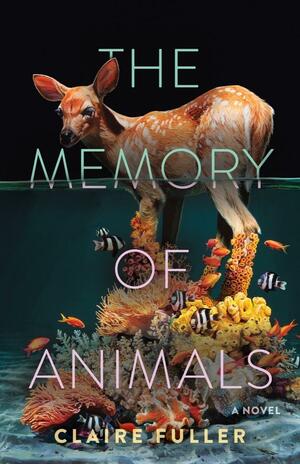The Memory of Animals is Claire Fuller’s apocalyptic pandemic novel, so I usually would not have read it. But then again, it’s Claire Fuller.
Neffy has volunteered for a drug trial, an unusual one where a vaccine is to be tested for the first time by humans. The virus is already wreaking havoc, so the subjects will be vaccinated and then given the disease. Neffy, we learn later, has recently experienced a series of difficult events and has joined the trial for money after losing her job. Before she even starts the trial, she hears of a variant of the virus that is even worse.
After Neffy is given the virus, she becomes very sick. She is aware of being locked in her room and deserted. When she recovers, she finds the clinic is empty except for four other study participants—Leon, Yahiko, Rachel, and Piper. They tell her that the medical staff abandoned them and all the rest of the participants left—that only Neffy and a few others were given the virus before the trial shut down.
Outside is an apocalyptic world where the occasional person or two, looking ill, stumble by outside the clinic, and stores are looted. The remaining participants are hiding in the clinic, living off the food they’ve scavenged from the trial and the staff’s lockers.
The narration goes in different directions, as Neffy addresses letters to an octopus she cared for in her job. She also is introduced to a device brought by Leon that allows her to revisit scenes from her past. With little to do in the clinic, she begins revisiting so that she can see her parents and her stepbrother/lover Justin.
This novel is moody and contemplative rather than eventful. It explores such issues as the treatment of animals in labs and zoos, our responsibilities to other people and animals, the dangers of freedom vs. the comfort of restriction.
Sometimes this novel flagged a little for me. I was less interested in the present-time story than in the revisits. I also came to understand how someone could love an octopus.





